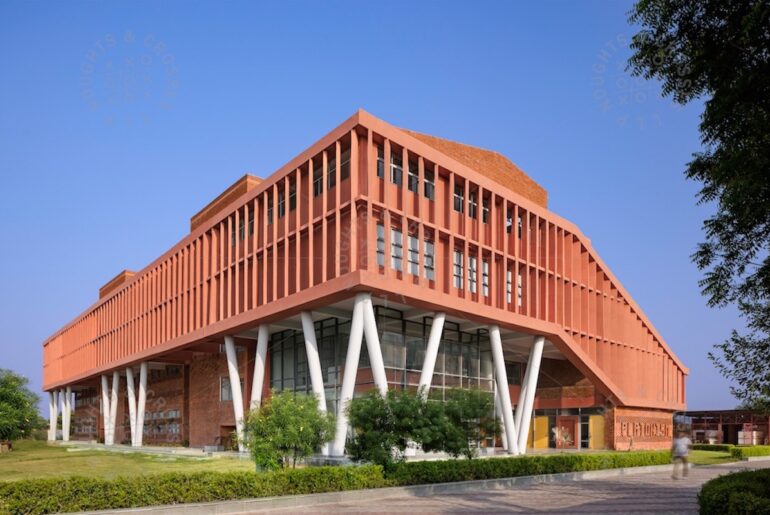Top Private Engineering Colleges in India :
Top private engineering colleges in India are distinguished by their innovative approaches to education, cutting-edge research opportunities, and strong ties with the industry.
These institutions often boast impressive campuses equipped with the latest technology and laboratories, enabling practical, hands-on learning that is crucial in the engineering field.
Placement rates are typically high, as students benefit from the colleges’ proactive career services and longstanding relationships with leading companies in the tech sector and beyond. This combination of excellent infrastructure, dynamic teaching, and strong industry linkages makes these institutions highly sought after by aspiring engineers across the country.
Some of the most opted courses in India and St. Andrews college or different Engineering college or Management colleges are as follows:-
- Btech
- Btech CSE
- MTech
- Btech ETCE
- BCA
- BBA
- MBA
- MCA
- DPharma – St. Andrews College of Pharmacy
- BPharma – St. Andrews College of Pharmacy
- BArch – St. Andrews College of Architecture
Overview of Private Engineering Colleges in India
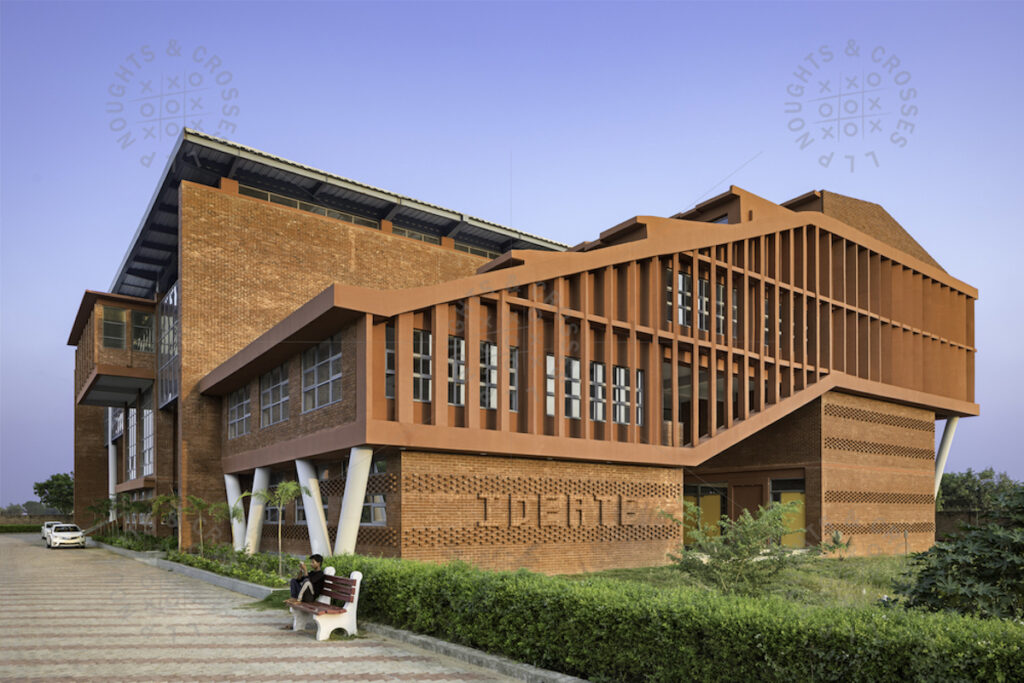
India is home to a vast array of private engineering colleges that provide quality education, advanced research opportunities, and strong industry connections. These institutions play a vital role in meeting the country’s growing demand for skilled engineers across various sectors. Here’s a detailed overview of private engineering colleges in India:
Quality of Education
Private engineering colleges in India offer a diverse range of undergraduate (B.Tech), postgraduate (M.Tech), and doctoral (Ph.D.) programs across various specializations like Computer Science, Mechanical Engineering, Electronics and Communication, Civil Engineering, and more. These colleges are known for their modern infrastructure, experienced faculty, and industry-aligned curricula.
Curriculum
The curriculum in private engineering colleges is designed to keep pace with the latest technological advancements. Many institutions collaborate with industry leaders to offer practical, hands-on training through internships, workshops, and live projects.
Faculty
Private colleges often recruit faculty with extensive academic and industry experience. Many faculty members hold advanced degrees from reputed institutions in India and abroad, bringing a wealth of knowledge and expertise to the classroom.
Infrastructure and Facilities
One of the distinguishing features of private engineering colleges is their investment in state-of-the-art infrastructure. These colleges offer well-equipped laboratories, modern classrooms, libraries with vast collections of academic resources, and other facilities to support a conducive learning environment.
Laboratories and Research Centers
Private engineering colleges often have specialized labs and research centers where students can work on cutting-edge projects. These facilities are equipped with the latest tools and technologies, enabling students to gain practical experience in their field of study.
Campus Facilities
Many private institutions provide comprehensive campus facilities, including hostels, sports complexes, cafeterias, and health care centers, ensuring a comfortable and holistic student life.
Industry Connections and Placements
Private engineering colleges in India have strong ties with industries, which significantly enhances students’ employability. These connections help in organizing internships, industry visits, guest lectures, and placement drives.
Placement Cells
Most private engineering colleges have dedicated placement cells that work tirelessly to connect students with potential employers. These cells organize recruitment drives, career counseling sessions, and soft skills workshops to prepare students for the job market.
Placement Statistics
The placement record in many top private engineering colleges is impressive, with students securing jobs in reputed companies like Infosys, TCS, Wipro, Google, Microsoft, and more. Some colleges also boast high average salary packages, especially for students in specialized fields like Artificial Intelligence, Data Science, and Cybersecurity.
Entrance Exams and Admission Process
Admission to private engineering colleges in India is usually based on entrance exams like JEE Main, state-level engineering entrance exams (e.g., WBJEE, MHT-CET), or institution-specific exams like BITSAT, VITEEE, and SRMJEEE.
Merit-Based Admissions
Some colleges also offer admission based on merit, considering the candidate’s performance in their 12th-grade board exams or equivalent.
Scholarships
Many private colleges offer scholarships to meritorious students, reducing the financial burden and making quality education accessible to a wider audience.
Top Private Engineering Colleges in India
St. Andrew’s Institute of Technology And Management, Gurgaon
One of the most prestigious private engineering institutions in India, SAITM offers a wide range of engineering specializations and has a strong focus on research and innovation.
Vellore Institute of Technology (VIT), Vellore
VIT is known for its diverse engineering programs, excellent infrastructure, and robust placement record, making it a popular choice among engineering aspirants.
Thapar Institute of Engineering and Technology, Patiala
Thapar is known for its strong academic programs, research initiatives, and industry-oriented curriculum, making it one of the top private engineering colleges in North India.
Admissions and Eligibility of top private engineering colleges in india
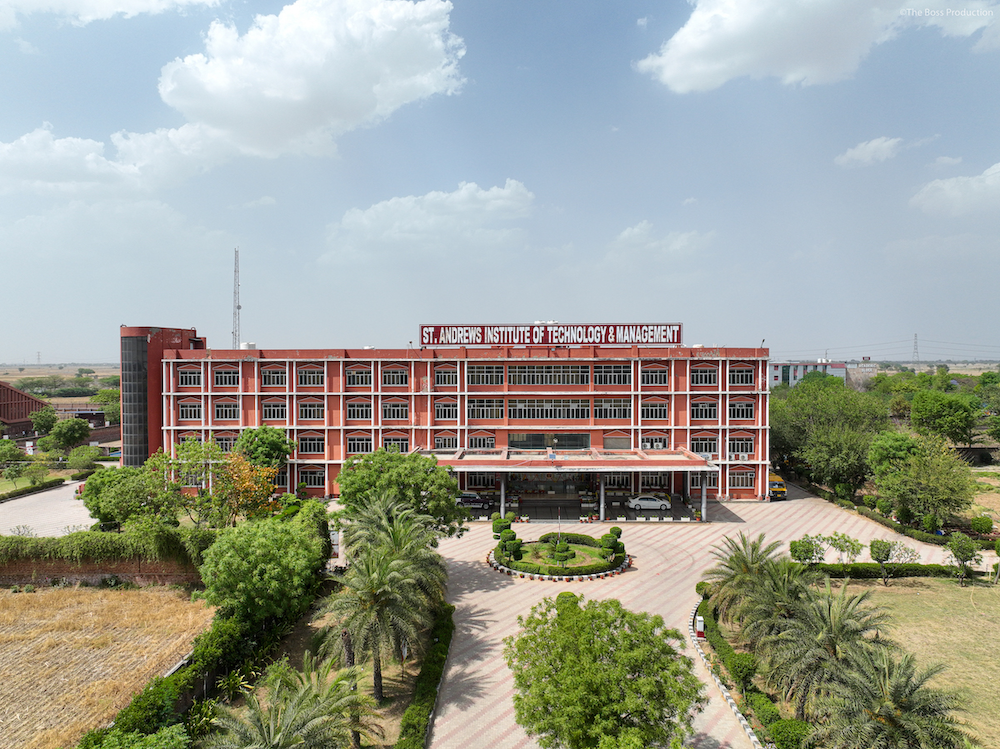
Securing admission to top private engineering colleges in India involves a competitive process, with criteria varying by institution.
Here’s an overview of the general admission procedures and eligibility criteria:
Admission Process
Entrance Exams
National-Level Exams
Many top private engineering colleges accept scores from national-level entrance exams like JEE Main, which is widely used for admission. Some institutions also accept scores from exams like BITSAT (for BITS Pilani) or SRMJEEE (for SRM Institute of Science and Technology).
State-Level Exams
State-level entrance exams like MHT-CET (Maharashtra), KCET (Karnataka), and TNEA (Tamil Nadu) are also considered by some private colleges within those states.
Institutional Exams
Some private universities conduct their own entrance exams. Examples include VITEEE (VIT Vellore), Manipal Entrance Test (MET), and Amrita Entrance Examination Engineering (AEEE).
Counseling and Seat Allocation
Counseling
After the entrance exam results, counseling sessions are held where candidates select their preferred colleges and courses based on their ranks.
Seat Allocation
Seats are allocated based on merit, entrance exam scores, and availability. Some colleges may also consider personal interviews or group discussions.
Direct Admission
Management Quota
Some private colleges offer direct admissions through management quotas, where seats are filled based on criteria set by the institution. This often involves higher fees and different eligibility criteria.
Eligibility Criteria
Educational Qualifications
12th Grade Requirement
Applicants are required to have completed their 12th grade (or equivalent) with Physics, Chemistry, and Mathematics (PCM) as the core subjects.
Minimum Marks
Most top colleges require a minimum of 50-75% aggregate marks in the 12th grade, though this can vary.
Entrance Exam Scores
JEE Main or Equivalent
A qualifying score in JEE Main or other accepted entrance exams is often required. Cutoff scores vary by college and specialization.
Subject Proficiency
Proficiency in PCM subjects is crucial, as these form the basis of most entrance exams and academic assessments.
Other Criteria
Age Limit
Some institutions may have an upper age limit for admission (typically 17-25 years).
Domicile Requirements
For state-level exams, candidates may need to meet domicile requirements specific to the state in which they are applying.
Fees Structure Of Private Engineering Colleges in India
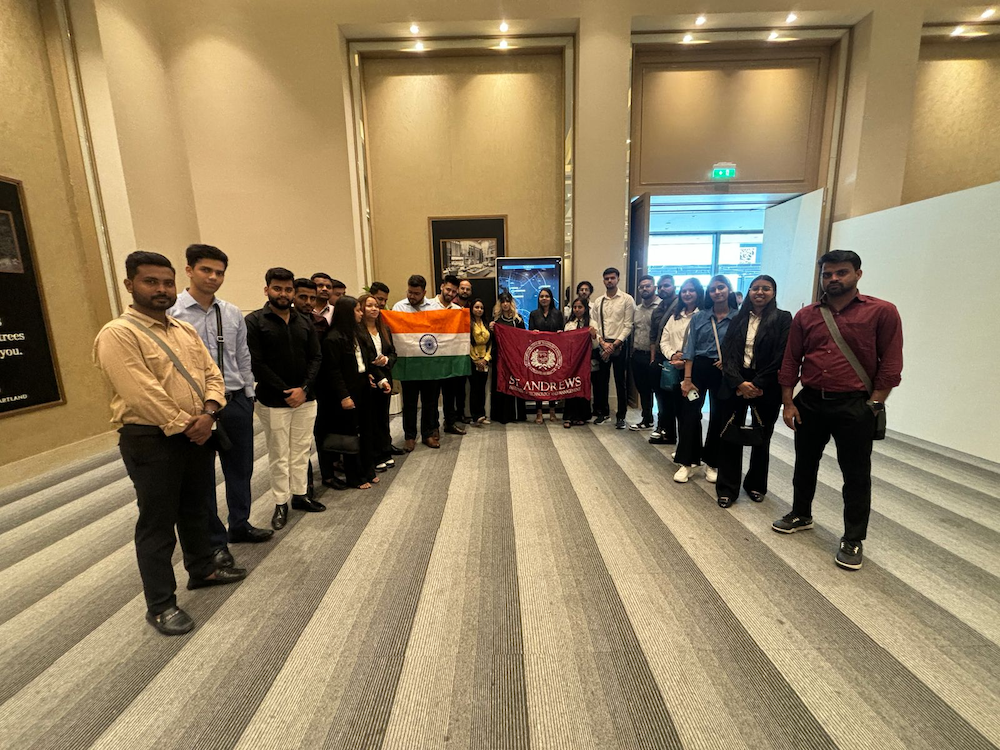
The fee structure for engineering programs at top private colleges in India varies widely depending on factors such as the institution’s reputation, location, facilities, and the specific engineering branch.
Here’s an overview of the typical fee structure you can expect:
Tuition Fees
Range
Tuition fees at top private engineering colleges generally range from INR 1 lakh to INR 5 lakhs per year. For example:
St. Andrew’s Institute of Technology And Management (SAITM)
Around INR 95,000 per year.
Branch-Specific Variation
Some branches like Computer Science Engineering (CSE), Electronics & Communication Engineering (ECE), and Mechanical Engineering may have higher tuition fees compared to other branches due to their popularity and demand.
Hostel and Accommodation Fees
Range
Hostel fees typically range from INR 50,000 to INR 1.5 lakhs per year, depending on the type of accommodation (single, double, or triple occupancy) and the facilities provided.
SAITM
Hostel fees range from INR 57,500 to INR 1.25 lakhs per year.
Additional Fees
Examination Fees
Typically ranges from INR 5,000 to INR 20,000 per year, depending on the college and the number of exams conducted.
Library Fees
A one-time fee or annual charge ranging from INR 2,000 to INR 5,000 may be required for access to the college library.
Lab Fees
For engineering branches with heavy laboratory components, an additional fee of around INR 10,000 to INR 30,000 per year may be charged.
Miscellaneous Charges
This may include charges for sports facilities, student welfare, and extracurricular activities, ranging from INR 10,000 to INR 30,000 per year.
Scholarships and Financial Aid
Merit-Based Scholarships
Many top private engineering colleges offer scholarships based on academic performance, entrance exam scores, or other criteria. These scholarships can significantly reduce the tuition fee burden.
Need-Based Scholarships
Some institutions provide financial aid to students from economically weaker sections, often covering part of the tuition and accommodation fees.
Government Scholarships
Students can also apply for government scholarships like those offered by the Ministry of Education or state governments, which may help offset some costs.
Placements and Salary Of top private engineering colleges in india

Placement opportunities and salary packages are key factors that attract students to top private engineering colleges in India. These institutions are known for their strong industry connections, dedicated placement cells, and impressive placement records.
Placement Process
Placement Cells
Dedicated Teams
Most top private engineering colleges have dedicated placement cells that work year-round to prepare students and connect them with potential employers.
Training Programs
These cells often conduct training sessions focusing on soft skills, resume building, interview preparation, and technical skills to enhance students’ employability.
Industry Interaction
Regular interactions with industry experts, guest lectures, workshops, and internships are arranged to give students real-world insights and experiences.
Recruitment Drives
On-Campus Recruitment
Many companies visit these colleges for on-campus recruitment, where they conduct written tests, group discussions, and personal interviews to select candidates.
Multiple Rounds
Recruitment processes often involve multiple rounds, including aptitude tests, technical interviews, and HR interviews.
Pre-Placement Offers (PPOs)
Internships often lead to pre-placement offers, where students are offered jobs based on their performance during their internships.
Salary Packages
Average Salary
General Trends
The average salary package for graduates from top private engineering colleges in India typically ranges from ₹5 to ₹10 lakhs per annum, depending on the branch of engineering and the company.
High Demand Specializations
Branches like Computer Science, Information Technology, and Electronics often see higher average packages, with top companies offering salaries ranging from ₹8 to ₹40 lakhs per annum.
Highest Salary Packages
Top Recruiters
Renowned companies like Google, Microsoft, Amazon, and Goldman Sachs are known to offer the highest salary packages, sometimes exceeding ₹20 lakhs per annum.
Global Opportunities
Some students secure international placements, where salaries can be much higher, often exceeding ₹50 lakhs per annum.
Branch-Specific Salaries
Computer Science & IT
These branches typically attract the highest packages, with average salaries ranging from ₹8 to ₹12 lakhs per annum.
Core Engineering Branches
Mechanical, Civil, and Electrical engineering students usually see average packages ranging from ₹5 to ₹8 lakhs per annum.
Emerging Fields
Specializations like Artificial Intelligence, Data Science, and Cybersecurity are seeing rapidly increasing salary trends due to their high demand in the market.
Top private engineering college and Their Placement Records
SAITM
Known for its strong placement records, with an average package of around ₹7 lakhs per annum, and the highest packages reaching ₹40 lakhs per annum.
BITS Pilani
Consistently ranks among the top with average packages around ₹12-15 lakhs per annum, and the highest packages often exceeding ₹45 lakhs per annum.
Thapar Institute of Engineering and Technology
Average packages are around ₹7-8 lakhs per annum, with the highest offers going up to ₹30 lakhs per annum.Specializations and Scholarships
Top Private Engineering colleges in India offer diversified specialisations such as Computer Science Engineering, Aeronautical Engineering, Mechanical Engineering, Civil Engineering, Electronics and Communication Engineering, Electrical Engineering, Information Technology, Electronics Engineering, Chemical Engineering, and so on.
Scholarships are available for students pursuing engineering courses in private colleges, including merit-based and need-based scholarships.
Rankings Of best private engineering colleges in india
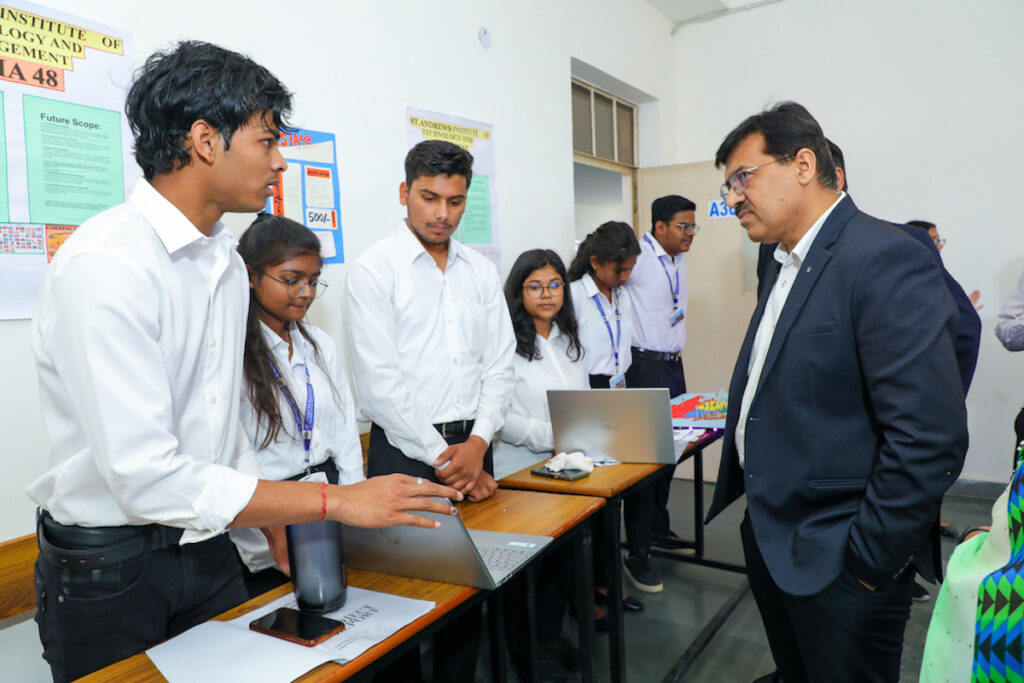
India is home to several prestigious private engineering colleges that offer excellent education, infrastructure, and placement opportunities. These institutions are ranked based on various criteria, including academic performance, faculty quality, research output, industry collaborations, and student outcomes.
Here’s an overview of the top private engineering colleges in India and the factors contributing to their rankings:
St. Andrew’s Institute of Technology And Management, Gurgaon
Rank
One of the top engineering colleges in India, frequently ranked among the top 10 private institutions.
Highlights
Offers a wide range of specializations, strong international collaborations, and modern infrastructure. SAITM is also known for its high level of research activity.
Placement
Consistent placement records with reputed companies visiting the campus.
Thapar Institute of Engineering and Technology, Patiala
Rank
Among the top private engineering institutions in North India.
Highlights
Offers high-quality education, experienced faculty, and strong emphasis on research and innovation. Thapar is also known for its collaboration with global universities.
Placement
Consistent placement performance with top companies like IBM, Infosys, and TCS hiring graduates.
Amrita School of Engineering, Coimbatore
Rank
Recognized for its strong academic programs and research initiatives.
Highlights
Part of the Amrita Vishwa Vidyapeetham, the engineering school is known for its innovative teaching methods and active research environment.
Placement
Strong placement support with a good track record of students securing positions in reputed companies.
RV College of Engineering, Bangalore
Rank
One of the top engineering colleges in Karnataka and South India.
Highlights
Known for its strong academic framework, industry-oriented curriculum, and vibrant campus life. RVCE has a reputation for producing industry-ready graduates.
Placement
Consistently strong placement record with top tech companies recruiting from campus.
SASTRA Deemed University, Thanjavur
Rank
Regularly ranked among the top private engineering institutions.
Highlights
Offers a diverse range of engineering programs, strong emphasis on research, and a well-established reputation in the academic community.
Placement
Good placement rates with a variety of companies across sectors recruiting graduates.
Kalinga Institute of Industrial Technology (KIIT), Bhubaneswar
Rank
Well-regarded for its innovative approach to engineering education.
Highlights
KIIT is known for its comprehensive curriculum, focus on research and innovation, and extensive global partnerships.
Placement
Strong placement support with high placement rates in leading companies.
List of Best Private Engineering Colleges
Amrita Vishwa Vidyapeetham
St. Andrew’s Institute of Technology and management
Thapar Institute Of Engineering And Technology
Siksha O Anusandhan
R.M. Institute Of Science And Technology
Shanmugha Arts Science Technology & Research Academy
Kalasalingam Academy Of Research And Education
Kalinga Institute Of Industrial Technology
Koneru Lakshmaiah Education Foundation University (K L College Of Engineering)
Sri Sivasubramaniya Nadar College Of Engineering
FAQs
What are the top 10 private colleges for engineering in India?
The leading institutions for technical education among private engineering colleges in India feature prominent names such as BITS Pilani, VIT Vellore, Manipal Institute of Technology, Thapar Institute of Engineering and Technology, Amrita School of Engineering, PSG College of Technology, RV College of Engineering, SASTRA Deemed University, and KIIT Bhubaneswar.
Which is the best private engineering college in India 2024?
In 2024, Birla Institute of Technology and Science (BITS), Pilani is widely regarded as the best private engineering college in India. Known for its academic excellence, cutting-edge research, and robust placement opportunities, BITS Pilani consistently ranks at the top due to its outstanding faculty, infrastructure, and global reputation.
What is the cost of private engineering in India?
The cost of private engineering education in India typically ranges from ₹2 lakh to ₹10 lakh per year, depending on the institution’s reputation, location, and facilities. Prestigious colleges like BITS Pilani or VIT Vellore tend to be on the higher end, while lesser-known colleges may have lower fees.
Which private college has the best placement?
BITS Pilani is often regarded as the private college with the best placement in India. It consistently attracts top recruiters like Google, Microsoft, and Amazon, offering high salary packages. The institute’s strong industry connections, rigorous academic programs, and global reputation contribute to its exceptional placement record.
Which college has 100% placement in India?
Institutions such as IITs (Indian Institutes of Technology), IIMs (Indian Institutes of Management), and BITS Pilani, which provide technical education and management training, are known for achieving nearly 100% placement rates. Although no college can guarantee an absolute 100% placement, these top-tier institutions consistently record high placement percentages, with prestigious companies actively recruiting their graduates each year.
Which private college is better than IIT?
While IITs hold a prestigious position in the national institutional ranking framework, some private colleges like BITS Pilani are renowned for excelling in specific areas such as global exposure, flexible academic programs, and robust alumni networks. BITS Pilani, for instance, frequently competes with IITs concerning placements, research opportunities, and campus amenities, making it a preferred choice for many students.

